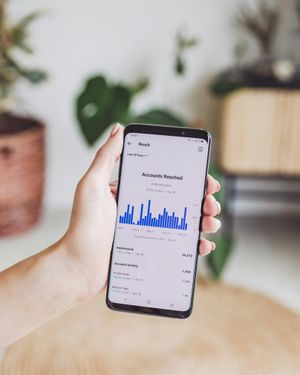Your B2B CRM is more than just a contact database. It’s your sales, customer success and growth headquarters. But with so many contenders, choosing the right one for your specific use case isn’t easy.
We put together this field guide to help you navigate the complex terrain of B2B CRM options in a practical way. Your choice won’t only be a solution for today but a scalable partner that grows with you.
We’ll share 10 essential criteria that should shape your decision-making process and compare the top six B2B CRMs available on the market.
What Is the Goal of a B2B CRM?
B2B CRM, short for Business-to-Business Customer Relationship Management, is a specialized software designed for companies that sell products and services to other businesses. Unlike a B2C CRM, it will accommodate the data and workflows you need for B2B sales.
In practice, a B2B CRM acts as a central hub that gives your sales and marketing teams more data “ammo” they can leverage to increase revenue.
Suppose your company provides project management software. Your CRM would track each client's subscription details – when it's up for renewal, what plan they're on and how extensively they use your features. When their renewal date comes around, the CRM would remind you to reach out and perhaps even offer a personalized upgrade based on their usage patterns.
Similarly, a great CRM would make efforts such as account-based marketing much easier. When implemented correctly, a B2B CRM breaks down the silos between sales and marketing teams, so you can align on the ideal customers and find the best way to target them for conversions, upgrades or lifetime value increases.
Without a reliable CRM, your teams won’t just have to deal with tedious tasks like scanning spreadsheets and manually nurturing leads. The biggest challenge is the lack of visibility. As the saying goes, “You don’t know what you don’t know.”
Without a CRM, it’s hard to track the subtler data like intent and market shifts. You end up only relying on basic firmographic data, which isn’t enough to, for example, time your upsells correctly or predict the response to your campaigns.
But as we said, it takes more than using the first CRM you find on Google.
You need the right CRM for your business. The wrong CRM choice can have long-lasting consequences like wasted time and money, as well as frustrated salespeople and jeopardized revenue potential.
How to Choose the Right B2B CRM for Your Company
The team at Findymail has worked with dozens of CRMs, so we sat down with them to discuss the most important criteria when selecting vendors.
1. B2B CRMs and Industry-Fit
Check if the CRM caters to your industry's needs. For instance, Salesforce Health Cloud offers features designed for the health sector, while a real estate CRM like Wise Agent would focus on property-specific features.
Ask for case studies and look for CRMs with a proven track record in your industry, especially if it’s subject to additional regulations like HIPAA.
2. Right Views to Support Your Objectives
Define your CRM goals – do the CRM's features align with them? Dive into your company's needs, challenges and goals. Whether it's improving lead tracking or strengthening your sales pipeline, different CRMs cater to different issues.
For example, some B2B CRMs like Pipedrive focus on one view like pipeline management. They’re great at showing you how many deals there are in the pipeline and how fast they’re moving.
But if you also need to get a company-level view because you’re communicating with multiple accounts in that company and want to tie that information into their lifetime value forecasts, you will need a CRM like HubSpot, which is built for multiple view layers.
3. The Scaling Potential of Your B2B CRM
Similarly, the CRM needs to align with your current growth stage and your predicted growth stage. Look for one that can evolve with your company as your deals get more complex.
At the same time, don’t overdo the complexity. If you have a simple product, don’t force yourself to go through implementations for complex and modular CRMs like MS Dynamics.
On the other hand, if you have multiple enterprise products, a simple CRM like Close won’t stay a good fit one year down the line. Never implement a B2B CRM just to put out fires.
Instead, know what you need, where you plan to go (and grow). Then, implement with a long-term vision.
4. Integration and Data
Your B2B CRM should seamlessly share data with your existing tools.
For example, you might use Findymail for actionable email data or ZoomInfo for data enrichment.
Your CRM should automatically pull all the relevant info from the tools in your stack, such as emails or recent purchases. That way, you can get a holistic view of your customers and business ops.
Consider how your CRM will deal with duplicates and inaccuracies when the data starts pouring in from different sources. Is it able to detect duplicates or flag missing information?
5. B2B CRM User-Friendliness
The last thing you want is a system your (sales) team is frustrated with and doesn’t know how to use.
Test the CRMs with a focus group. Look at specific things that occur in your team’s typical workflows.
For example, can the CRM correctly assign company/lead ownership? You want to avoid situations when two leads from the same company are assigned to two different salespeople.
Look for a CRM that offers support such as guides and tutorials to make onboarding painless. If you implement a more complex solution like Salesforce, look into training options.
Finally, look for convenience features such as a mobile app. Your team will thank you when they want to check lead history without their laptops nearby.
6. Automation and Workflow Management
Remember, the goal of a CRM is to make your life easier so you and your team can focus on areas that bring in revenue. Automation and workflow management are vital.
At the very least, your CRM should allow you to do the following (without needing developer help):
- Set up automatic workflows for your team
- Set up automatic workflows for contacts
- Create and use templates
- Auto-fill data
- Schedule emails
For example, you should be able to implement your follow-up strategy so it runs without manual input.
7. B2B CRM Customization
Your CRM needs to handle long sales cycles and complex decision-making processes. And, as your business grows, the CRM needs to adapt to fit your evolving requirements.
For example, would you be able to customize data fields to keep track of a contact’s preferred integration tools?
Similarly, would you be able to set up different permission levels based on the user’s role in the company?
And, as a manager, what are your options for day-to-day, monthly, quarterly and annual sales performance tracking through dashboards?
8. Security and Compliance
Robust data security and compliance are must-haves for your CRM, especially if you handle sensitive customer data.
Make sure your CRM provider has the latest security protocols in place and follow the compliance laws and regulations for your industry and in your region.
9. Testimonials and Case Studies
What are others saying about this CRM?
Don’t just look at testimonials and case studies on their site but do a bit of research on sites like G2 or Capterra to see their reviews and ratings. Look at the types of users who are submitting reviews: are they in the same industry or growth stage as your organization?
Check the lowest ratings to see if there are common problems. Also, many companies respond to complaints so you can see how they handle customer relations themselves.
10. Cost and ROI
Finally, consider the financial aspect of the decision. Of course, the upfront cost is always important but you should also look at the CRMs' long-term value.
And remember, it’s cheaper to scale up your existing CRM than to pay for a migration to a new CRM every few years.
The Top 6 B2B CRM Tools
With these criteria in mind, let’s look at the top 6 B2B CRM tools and see how they compare:
1. Salesforce
Salesforce is one of the most popular CRMs available and for a good reason. Firstly, it caters to specific sectors like healthcare and financial services with CRMs like Salesforce Health Cloud.
It also offers a comprehensive suite of software for mid-sized and enterprise companies, where they can manage customer relationships and take full advantage of Salesforce AI-powered analytics tools to get meaningful info from the data.
Salesforce is highly customizable, as well. You can adapt it to the way your team works with automated workflows, customer support management, streamlined marketing campaigns and more. Plus, it offers a plethora of integrations for the services and software you’re currently using, including Findymail for high-quality email data.
In the beginning, Salesforce is very user-friendly, thanks to the many years of experience and refining the interface. However, as you add more features to the original suite, you’ll need development help and training for your team.
Salesforce starts at $25/user/month for the bare-bones package. But if you want everything Salesforce offers, the complete package is $500/month/user. That means Salesforce can strain your budget as your company scales.
All in all, Salesforce is the #1 CRM for a reason. It’s a good choice for most growing companies, but it also offers niche CRMs for different industries like fintech. It’s customizable, feature-rich and offers robust security features.
2. HubSpot
HubSpot is another top CRM choice for small to mid-sized businesses. It can fit many roles from marketing and sales collaboration to customer service and customer success functionalities.
Depending on your needs, HubSpot provides account and lead management so you can easily capture and store relevant info about customer engagement, behavior and activities.
It also offers email marketing automation so your marketing team can create more targeted and effective campaigns. And there’s pipeline management so the sales team can track and manage leads through the customer journey. At the same time, managers will be able to review the high-level sales performance through customizable dashboards.
HubSpot is also customizable down to the workflows, the UI and data models. It’s all straightforward to use and set up with its intuitive interface.
With HubSpot, you’ll have all the integrations you need, even Findymail to enrich your CRM data.
If you’re a small business or just starting, then HubSpot is a cost-effective solution for a CRM. Its starter package is completely free and provides all the essential tools. And when you’re ready to grow and scale, you can upgrade to expand the functionality and still retain the system you’ve gotten used to.
3. Close CRM
The Close CRM was designed for start-ups and small businesses. The system is easy to use, meaning your sales team can quickly start using Close CRM and capitalize on standout features like lead scoring, task and workflow automation, email management and more.
Close CRM's biggest highlight is the unified view of email, phone and SMS channels.
It also offers seamless integrations with systems you’re already using, including Findymail for high-quality contact details.
However, the functionality is a bit limited so it might be a problem when trying to scale up operations. For example, it’ll be great for day-to-day tasks like pipeline management, but if you want to switch to a managerial view for forecasting, all your needs will not be covered.
Close starts at $59/month/user for the essential features needed to get the ball rolling. While they offer an enterprise plan for $749/month, there are better options for enterprise B2B CRMs (including Salesforce and HubSpot).
But Close CRM is great at what it does. It’s an attractive option for small, fast-paced sales teams that need to streamline operations so they can focus on more impactful tasks like nurturing leads or closing deals.
4. Pipedrive
Pipedrive is another CRM provider that empowers sales reps. It’s a powerful solution for small B2B companies without complex product offerings. As its name implies, it focuses on pipeline management.
It provides all the tools needed for the entire customer journey. There’s marketing automation so you can trigger emails based on customer engagement and interactions. Then, it streamlines data input and tracks communications so the sales team can effectively nurture leads with automatic personalized follow-up emails.
And with AI-driven sales analytics and advanced visualizations, Pipedrive makes it easy to spot (and seize) opportunities. All of this is wrapped in an easy-to-use interface so you don’t need to spend a lot of time training your team on how to use it.
Pipedrive also offers robust integration support for hundreds of tools (Findymail included) so you can quickly scale as you plug new systems into your stack.
Finally, Pipedrive is also one of the most affordable B2B CRMs, starting at $15/month, with the most expensive plan being $99/month.
5. Copper CRM
Copper CRM is built for companies that operate on the Google Workspace framework. It works and looks like the rest of Google Apps like GSheets, so it’s extremely intuitive if you’re already in that ecosystem.
What’s great about Copper is that you can get a lot done without ever leaving your inbox. It can record lead contact info and past interactions directly into the CRM. Plus, it will track all of your events in Google Calendar so you never miss an important meeting.
Copper also offers workflow automation and eliminates repetitive tasks like manual data entry. Although it's built for Google products, it offers plenty of integrations with tools with Mailchimp, DocuSign and Findymail.
However, its strength is its greatest weakness. It will be difficult to scale to other channels besides email. Similarly, when you need to scale beyond the confines of Google Workspace, you’ll need a different solution.
Copper CRM's basic plan starts at $29/month.
6. Zoho CRM
Zoho offers a comprehensive cloud-based CRM with AI-powered features such as:
- Predictive sales
- Sales forecasting
- Sales process management
- Lead scoring
And more! Of course, the accuracy of the AI-driven features will depend on the accuracy of the data you put into the system, so pay special attention to integrations and data hygiene.
Speaking of integrations, Zoho integrates with plenty of tools you already use, including Findymail, Slack and Xero.
In terms of day-to-day sales ops, Zoho CRM helps your team with robust reporting and analytics tools, workflow automation, advanced customer segmentation and real-time data capture to create holistic customer profiles.
You can make Zoho CRM your own with its extensive customization and role-specific UIs. Each team member won’t only get the data they need. They’ll also be able to get a unique view that adapts to the way they work.
Finally, Zoho CRM is one of the most affordable options for scalable B2B CRMs. It starts at $20/month, with its most comprehensive Ultimate package at just $65/month.
Avoid CRM-Induced Headaches
You know what they say: when a CRM is good, then it’s not a big part of your sales success. But when it’s bad, you feel the effects like a constant sharp pain in your side.
A good B2B CRM works exactly the way it should – in the background. Your team seamlessly uses it and you feel a lift on your revenue. When it’s not the right fit, you’ll feel a pinch.
So before you make the final decision, spend time evaluating and researching your top contenders. Consult your team and everyone who will be using, implementing and customizing it.
Bookmark this guide and run through the criteria checklist. Remember: you’re in this for the long haul. Will your CRM be there to support you?






